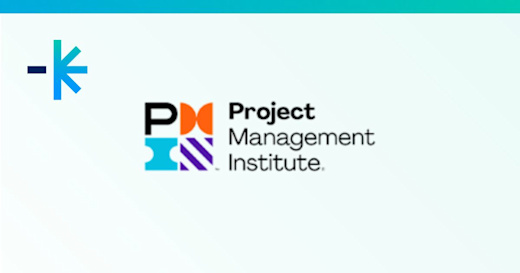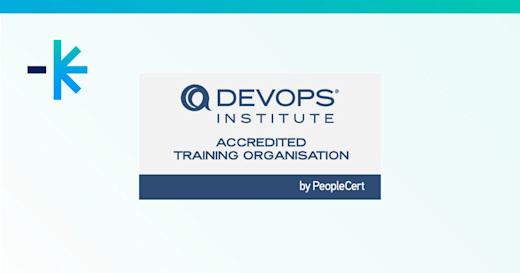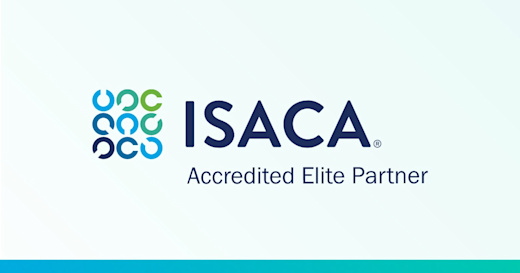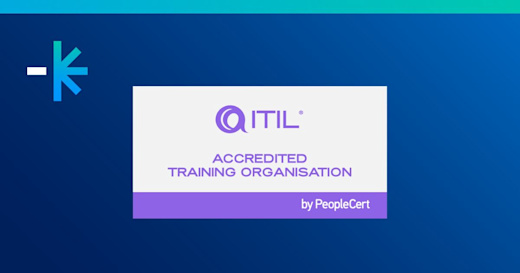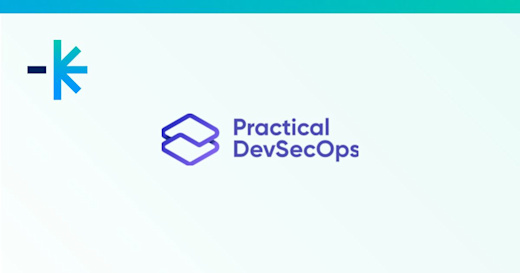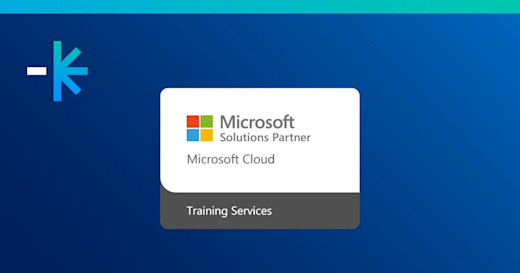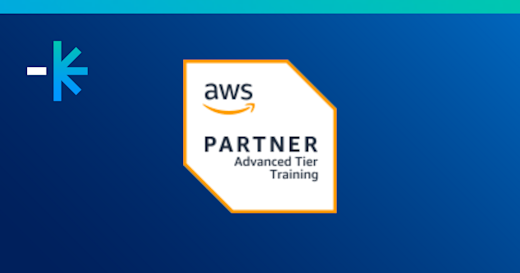As digital infrastructure continues to grow in scale and complexity, so does the demand for skilled professionals in networking, IT support and cyber security. From protecting hybrid environments to preserving business-critical systems, companies need dependable expertise that can react quickly, minimise errors and maximise performance.
For IT leaders and HR, investing in certified training guarantees that teams are not only technically equipped and ready to take on challenges, but they can do so in line with industry standards for reliability and efficiency.
Valued worldwide, CompTIA (Computing Technology Industry Association) and Cisco are two leading IT certification bodies. CompTIA offers vendor-neutral certifications, while Cisco provides vendor-specific pathways, such as the CCNA (Cisco Certified Network Associate). They are also two of the most recognised certification routes for early- to mid-career professionals or companies building internal capabilities.
By exploring the main differences between CompTIA and CCNA, this guide will enable you to choose which certification best fits the learning objectives, organisational requirements and current skill level of your team.
What is the Cisco Certified Network Associate (CCNA)?
Designed and issued by Cisco, the CCNA certification is highly regarded for professionals beginning or advancing in IT networking roles. It covers basic subjects including network access, IP connectivity, security principles and automation.
For organisations, CCNA-certified professionals contribute to more secure, efficient and well-maintained network environments. The certification is particularly beneficial for teams supporting enterprise infrastructure, Implementing and Administering Cisco Solutions (CCNA) or working within hybrid IT environments. It supports greater reliability, reduced troubleshooting time and improved performance — making it a strategic training investment for IT leaders focused on capability building and long-term operational efficiency.
What Are The Key Fundamentals of a CCNA Course?
Designed to develop the critical, job-ready skills needed to support and maintain contemporary network environments, a CCNA course emphasises the ideas of networking. It enables students to apply their knowledge in practical situations, such as device configuration, infrastructure security or troubleshooting problems. Below are the key fundamentals covered in a typical CCNA certification course:
Networking Fundamentals
This area introduces the building blocks of network architecture, including LANs, WANs and the OSI model. Students learn about data flow across a network, the purposes of routers and switches, and how TCP/IP allows consistent communication. All networking chores and troubleshooting depend critically on these aspects.
IP Management
IP addressing and subnetting are highly valued in CCNA training, as they help control network scalability and efficiency. Participants learn about IPv4 and IPv6 configuration, routing table management, and how to ensure devices communicate accurately within a network. This knowledge is essential for minimising errors and maintaining network performance.
Security Fundamentals
As network threats become more sophisticated, security is a central focus in CCNA. The course introduces access control lists (ACLs), device hardening and basic security protocols to help safeguard infrastructure. IT teams acquire the skills to implement baseline security measures, thereby reducing vulnerabilities and protecting sensitive data.
Automation and Programmability
Modern networks are increasingly software-defined and automated. The CCNA course introduces basic concepts of automation, APIs and controller-based architectures. This helps learners prepare for environments that rely on programmability for speed, consistency and reduced manual intervention.
Network Access and Connectivity
Students also explore how devices access the network through wired and wireless connections. Topics include VLANs, interswitch connectivity, Spanning Tree Protocol (STP), and wireless standards. Understanding these elements enables professionals to support a wide range of access scenarios and ensure network availability.
What is a Computing Technology Industry Association (CompTIA) certification?
A CompTIA certification is an industry-respected credential validating basic and advanced IT skills across technical support, networking, cyber security, cloud computing and more. Vendor-neutral certifications from CompTIA fit professionals working in a range of IT environments, independent of the platforms or tools used.
CompTIA certifications provide companies with a consistent benchmark for technical competency and job readiness, helping teams close skill gaps, boost productivity, and minimise operational errors. From basic IT support skills in entry-level courses like CompTIA A+, which support workforce development across all phases of the IT career path, to specialist certifications like CompTIA Security+ and CompTIA Network+, these programmes help workforce development everywhere. Training certified by CompTIA courses ensures your staff are aligned with the best standards and practices, ready to meet the needs of modern IT infrastructure.
What Are The Key Fundamentals of a CompTIA Course?
Strong, practical foundations across key IT sectors are built into CompTIA courses, arming professionals with the tools required to support and secure contemporary technology environments. For those who are upskilling current employees or teaching new team members, these certifications centre on fundamental ideas that improve system dependability, user support and operational effectiveness. Here are the core areas typically covered in a CompTIA course:
Managing Operating Systems
Essential knowledge from CompTIA training helps install, configure and maintain operating systems, including Windows, Linux and macOS. Learners develop the ability to negotiate system settings, manage files and users and resolve common issues — ensuring smoother daily performance on all devices and platforms.
Cloud Computing
As cloud adoption becomes standard across industries, CompTIA courses introduce the principles of cloud computing and virtualisation. Professionals gain a working understanding of service models (IaaS, PaaS, SaaS), deployment strategies and how to support cloud-integrated environments in hybrid infrastructures more effectively.
Networking Basics
Most CompTIA pathways, especially Network+, focus on networking fundamentals, including protocols, IP addressing and network troubleshooting. These skills are critical for ensuring devices and systems remain securely and reliably connected, minimising downtime and communication issues within organisations.
Cyber Security Foundations
With CompTIA Security+, professionals learn how to identify vulnerabilities, implement security controls and respond to incidents. Topics include threat detection, secure network architecture and compliance — all crucial for reducing risk and protecting organisational assets.
Hardware and Device Support
Courses, including CompTIA A+ address hardware component identification, installation and troubleshooting. This information enables front-line IT support teams to confidently manage device rollouts, repairs, and maintenance, thereby increasing end-user satisfaction and reducing technical escalations.
CCNA vs CompTIA: Which One is For Your Company?
When selecting the right training path for your team, the decision between CCNA and CompTIA should be guided by your organisation’s technical goals, current capability and workforce development strategy. Here’s how to evaluate which is the better fit for your business:
Organisational Needs
First, consider the type of IT infrastructure you have and the outcomes you want from training. Suppose your organisation relies heavily on Cisco-based networking environments or requires specialised configuration and troubleshooting skills. In that case, the CCNA provides focused, vendor-specific expertise, ensuring employees are trained to manage systems with accuracy and speed
CompTIA's vendor-neutral certifications, A+, Network+ and Security+, provide basic knowledge that supports a wider range of roles and systems. This ensures teams can support a greater spectrum of platforms or general IT functions, including help desks, technical support or cross-platform infrastructure. This adaptability is incredibly useful in settings with various hardware and software ecosystems.
Experience Level of Employees
CompTIA certifications are ideal for early-career IT professionals or teams with mixed experience levels. They offer a clear progression from foundational skills (e.g. A+) through to networking (Network+) and security (Security+), making them a strong choice for companies investing in upskilling or onboarding junior staff.
In contrast, CCNA is more technical and best suited for employees with existing knowledge of basic networking concepts. It requires a deeper dive into configuration, routing and switching, and is often pursued by team members in network administrator or engineer roles. If your team already has baseline experience, CCNA can help elevate their ability to manage more complex networks.
Costs and Training Length
Budget and training timelines also play a key role. CompTIA training programs tend to be shorter and more module-focused, making them easier to scale across large teams or introduce as part of onboarding. The courses are often more affordable, which can be beneficial for organisations seeking to train multiple employees within a fixed budget.
CCNA courses are more intensive, both in terms of content and cost, but offer a higher level of technical depth that can reduce long-term support issues and enhance system performance. For organisations investing in building specialised in-house networking expertise, the ROI of CCNA training can be significant.
Long-Term Capability Building
Think beyond the initial certification. Particularly helpful for companies undergoing digital transformation or cloud migration, CompTIA certifications lay a wide, scalable IT foundation across many departments.
Conversely, CCNA provides the foundation for more advanced Cisco courses, which makes it perfect for assembling a dedicated networking or infrastructure team with a clear path to top technical positions. Should your company want to standardise Cisco technologies, CCNA offers a direct path to highly specialised capabilities.
Take Up a Certification Course With Lumify Work!
With budget cycles tightening and threat levels rising, the stakes are higher than ever. Flexibility and responsiveness prove critical to delivering impact. Explore hybrid learning models with Lumify Work where participants shift fluidly between in-person and virtual formats, sometimes within the same course.
Whether your organisation is building foundational IT capability or preparing teams for more advanced networking roles, both Cisco CCNA and CompTIA Network+ offer clear value by aligning with different levels of experience and operational goals. While CompTIA certifications are ideal for developing broad, vendor-neutral knowledge across support, networking and security, CCNA training equips your team with deeper technical skills for Cisco environments and more complex infrastructure needs.
At Lumify Work, we deliver trusted, industry-aligned training tailored for enterprise environments. Our expert instructors, flexible delivery formats, and nationally recognised credentials help your organisation improve performance, reduce errors, and future-proof its IT capabilities.
Cyber security training has become one of the most important investments a business can make in 2025 - not just to tick a box, but also to stay operational. Download our cyber security brochure to explore skilling, certification and pathways. Equip your team with the skills they need to thrive — enrol in a CCNA or CompTIA certification course with Lumify Work today.


